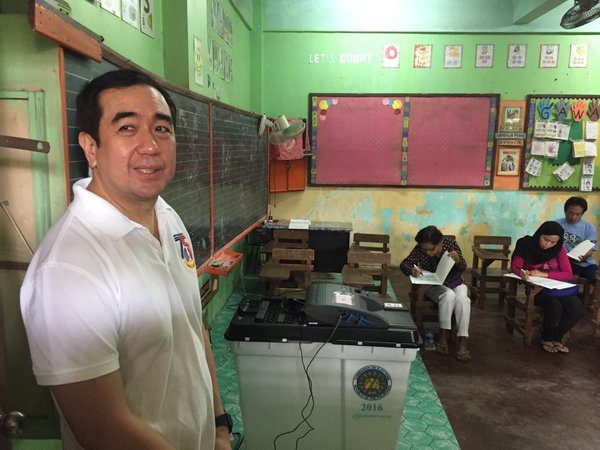SUMMARY
This is AI generated summarization, which may have errors. For context, always refer to the full article.

MANILA, Philippines – The Supreme Court (SC) on Tuesday, February 23, ordered the Commission on Elections (Comelec) chairman to comment on the petition to compel the poll body to issue voting receipts on election day.
In a media briefing, SC spokesman Theodore Te said the high court “directed respondent Comelec chairperson to comment” on the petition filed by senatorial candidate Richard “Dick” Gordon and his political party, Bagumbayan.
The SC told Comelec Chairman Andres Bautista to file this comment “within a non-extendible period of 5 days” after receiving the notice.
The notice is set to be delivered on Tuesday.
Gordon and Bagumbayan requested the SC on Monday, February 22, to order the Comelec to implement the Voter Verified Paper Audit Trail (VVPAT).
The VVPAT basically refers to the system of issuing receipts from vote-counting machines once a person has voted.
Gordon hits ‘grave error’
The Comelec voted 7-0 against the VVPAT because politicians can use the receipts in vote-buying, and issuing receipts can add 5 to 7 hours to the voting time in election precincts.
Former elections chief Sixto Brillantes Jr said that in previous elections, two other sets of Comelec members also voted 7-0 against the VVPAT.
Still, Gordon and Bagumbayan asserted that “it would be a grave error” to refuse including the VVPAT in the automated election system.
They wrote in their petition: “In mandating the institution and impelmentation of the VVPAT, it is the clear and unequivocal intent of Congress to give every voter the right and capability to confirm and verify whether or not the voting machine had indeed read his or her ballot correctly based on the choice of the voting citizen.”
Comelec spokesman James Jimenez, for his part, said that the decision to disable the VVPAT “was not taken lightly.”
“A long period of consultation and public demonstration was undertaken, as well as several time-and-motion studies, all of which indicated that the use of the ‘receipt’ would have adverse effects on the voting process,” Jimenez said. – Rappler.com
Add a comment
How does this make you feel?
There are no comments yet. Add your comment to start the conversation.